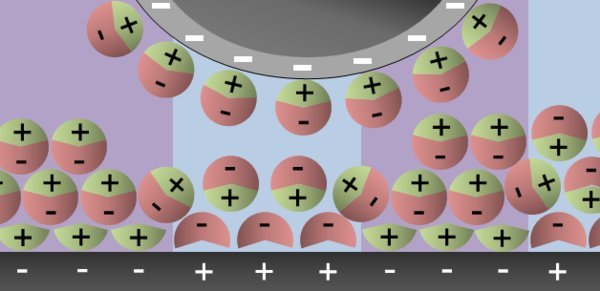
Interaction Forces and Functional Materials (closed)
Our research focuses on the broad areas of adhesion and friction as well as the interfacial forces and their utilization for designing better energy-saving, energy-efficient and long-lasting smart materials for applications in structural and functional materials. In particular we are also interested in dynamic interaction forces and soft matter physics in confined spaces.
The group was established in June 2012 and is integrated with the Department of Interface Chemistry and Surface Engineering. Our aim is to gain insight into the fundamental interactions in complex interfacial processes and to translate fundamental science into knowledge-based design of better and novel structural and functional materials for technological applications. We are particularly interested in:
- Fundamental work on interfacial forces, interfacial structures and tribology under (electrochemically active) variable environmental conditions.
- The effect of (electro-)chemical reactions on interfacial interactions with a particular focus on structural effects in confined spaces and complex environments.
- Measurement, understanding and ultimately prediction of properties of surfaces, interfaces and thin films over large length and time scales.
- Design and utilization of model experiments and tunable thin films and interfaces using unique bio-mimetic and molecular design concepts.
- Development and establishment of new experimental techniques for surface and interface analysis.
- Preparation and characterization of advanced functional materials with smart properties.
- Corrosion and reactivity in confined spaces (crevice corrosion, SCC).
- Structuring of ionic liquids at charged and uncharged interfaces.


